The annual HHC Conference is an international convening of scholars, practitioners, and students that promotes health humanities scholarship, education, and practices at the intersection of the humanities, arts, and social sciences in health, illness, and health care.
HCC and its conference seek to advance understanding of the experiences of patients, caregivers, and communities as they are shaped in relation to models of disease, illness, health, and wellness—and to educate the public, health professionals, and educators about the history, practice, and study of the health humanities.

The Health Humanities Consortium invites proposals for its annual conference on the theme of “Health Justice: So it goes?” We ask presenters to define the role of the health humanities in our current moment, to consider how health education can transform to meet today’s challenges, and to imagine humanistic approaches to building just futures. Our subtitle, presented in the form of a question, draws upon Indianapolis native and author Kurt Vonnegut’s masterpiece, Slaughterhouse Five, which prompts us to consider the meanings of devastation, destruction, and death in the world. Following every mention of death throughout the novel, his poignant phrase “So it goes” serves as an acceptance of the inevitable when written as a statement. In the form of a question, however, we are invited to consider the extent to which we must acquiesce; it becomes protest.
The concept of “health justice” has many origins in US history, though pride of place must be given to efforts to end health disparities and unethical medical practices, led by those most directly affected. The Black Hospital Movement, efforts to desegregate hospitals during the Civil Rights Movement, and the Black Panther Party’s community health clinics are just three examples of twentieth-century initiatives that emerged from Black communities.
Health humanities education, in its focus on building cultural competencies and skills in critical thinking, humility, empathy, and communication, has played an important role in addressing harmful practices that exacerbate health disparities.
Likewise, health justice also has been a key concern of bioethicists for half a century, with Tom Beauchamp asking us to consider “Public Health as Social Justice” in 1976; in 1979, both the “Belmont Report” and Tom Beauchamp and James Childress’s Principles of Biomedical Ethics enshrined “justice” as a core bioethical principle. The study of social determinants of health, which can be traced back to W.E.B. Du Bois’s The Philadelphia Negro (1899), continues to animate discussions about health disparities and efforts to ensure health equity. We can also point to tumultuous debates about health care as a human right and about access to health coverage in the US, including current controversies about Medicare, Medicaid, and the linking of health coverage to employment.
We encourage humanistic perspectives on health and medicine as shaped by social, political, and community contexts, with a focus on efforts to ensure health and wellbeing for all. We invite presentations in a range of formats that explore humanistic approaches to any of the following:
Panels, papers, and creative presentations that engage the conference theme are encouraged, but proposals which contribute to the broader project of the health humanities are equally welcome.
Deadline: Friday, October 31, 11:59 p.m. EDT. Please note: This deadline will not be extended.
Expected notification date: Early January 2026
Overall conference format:
The conference will begin with a plenary session and opening reception on the evening of Wednesday, April 8. Presentations will be grouped into 75-minute concurrent sessions beginning Thursday morning, all day Friday, and Saturday morning. The conference will conclude by 2 p.m. on Saturday. Most concurrent sessions will be hybrid with in-person and virtual presentation options, except for a small number of virtual-only sessions.
Submission guidelines:
We seek proposals in the form of 250-word (maximum) abstracts for flash presentations, individual presentations, and workshops. Complete panels and roundtables should be submitted as a 750-word (maximum) summary of the session that includes an overview of the session and individual descriptions of each participant’s presentation. An individual may submit and/or participate in no more than two proposals/sessions. All presenters must register for the conference. (See website for sliding scale registration fees.)
Presentation formats:
Flash presentations:
Individual presenters will have five minutes (timed) to present content not previously published. We expect to group seven flash presentations into one 75-minute session, leaving brief time for Q&A.
Individual presentations:
Individual presenters will have 15 minutes (timed) to present content not previously published. Content may take the form of a paper representing research and/or scholarly work or creative work such as art presentations, readings of creative writing, etc. We expect to organize presentations into groups of three based on common themes. Three presentations will constitute one 75-minute session, with up to 30 minutes total allotted for Q&A.
Complete panels:
Complete panels should consist of three to four presenters addressing a focused theme from diverse perspectives. The panel convenor should submit the proposal and will moderate and facilitate discussion among panelists and with audience members; this individual may also be one of the panel presenters. Complete panels will be allotted one 75-minute slot, with up to 30 minutes total allotted for Q&A.
Roundtables:
Roundtable sessions may contain up to eight participants, including the convener, and should address questions of broad interest within the health humanities. The format should emphasize engagement between panelists and attendees. Roundtables will be allotted one 75-minute slot, with up to 30 minutes total allotted for Q&A.
Workshops:
The primary aim of a workshop is to provide instructional content in an interactive manner. The number of presenters is dependent on the nature of the workshop. Please note in your proposal how you plan to engage both in-person and virtual participants. Workshops will be allotted a 75-minute slot.
Accessibility:
The conference organizers will create and encourage accessibility in all of the conference spaces and modalities.
For more information, contact conference@healthhumanitiesconsortium.com.
JW Marriott Indianapolis
10 S West St, Indianapolis, IN 46204
(317) 860-5800
Rooms are $229.00/night.
Here is our reservation link for participants:
Book Here
Check-in: 4:00 pm
Check-out: 11:00 am
Daily: $59.00
Daily: $80.00
